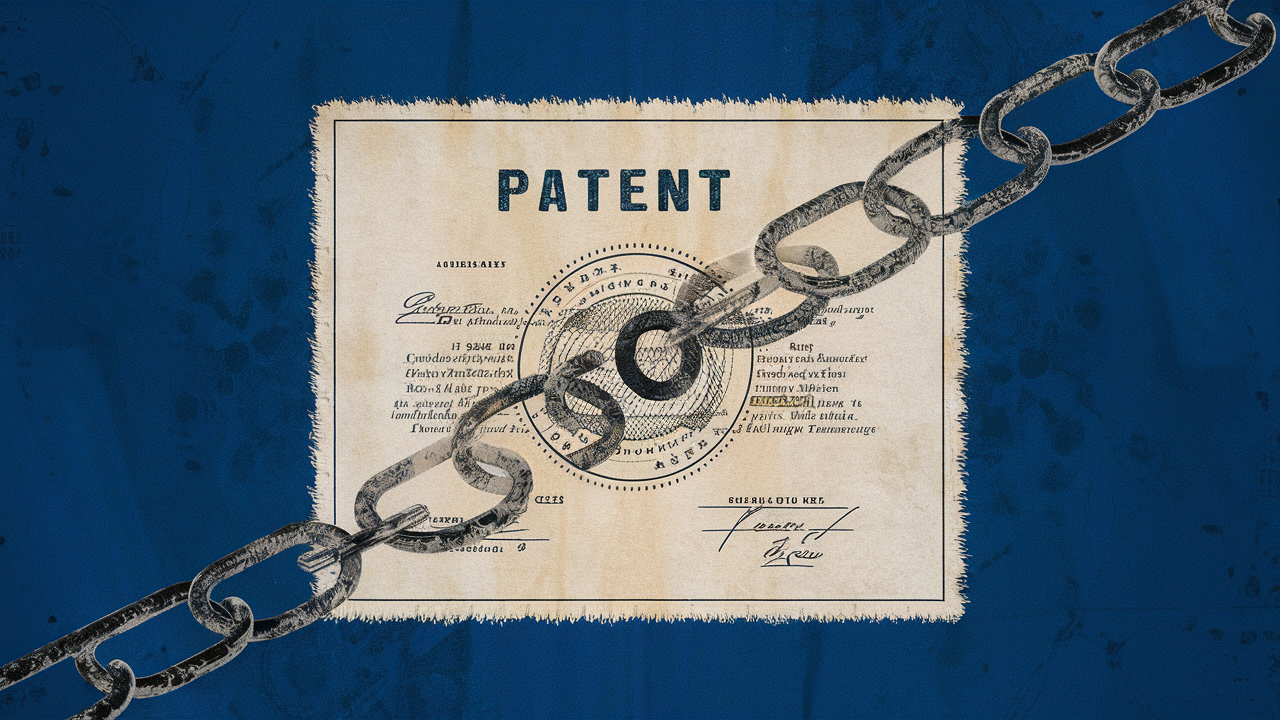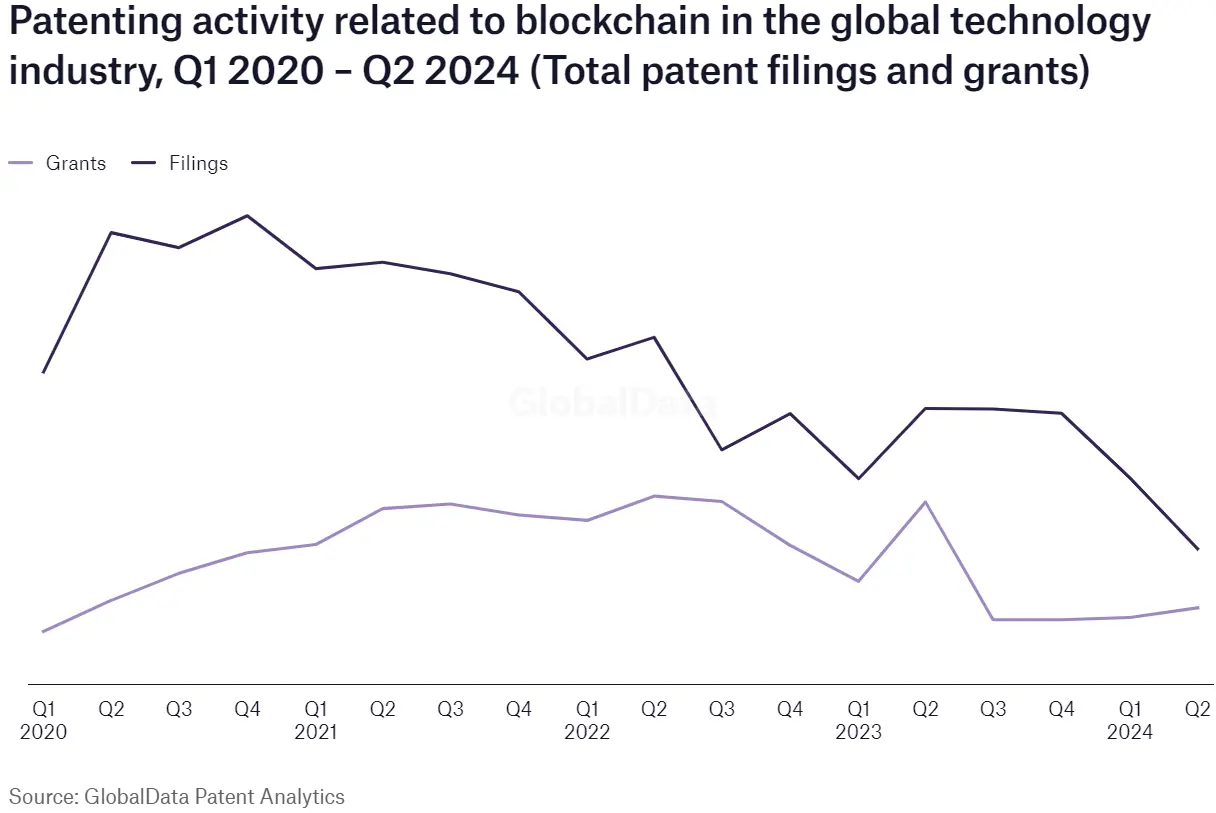
Blockchain technology has revolutionized various industries, from finance to supply chain management, by offering a decentralized and secure way to handle transactions and data. As companies invest heavily in developing blockchain solutions, the need to protect these innovations has increased. The biggest names in the blockchain industry are increasingly snapping up patents to protect their intellectual property and establish dominance. Patents on blockchain technology offer legal protection, ensuring that a company’s innovations cannot be copied or exploited by competitors without permission. Some of the top industry leaders holding blockchain-related patents include IBM, Baidu, Alipay, Toyota, Bank of America, and Microsoft.
IBM is a great example of a company that recognizes the value of patents and IP in the blockchain industry. IBM has been actively filing and acquiring patents in blockchain technology for the last several years. IBM holds several blockchain patents that establishes its position as a key player in this industry. IBM’s patent for “A Blockchain for Program Code Execution” for example addresses the challenge of securely executing program code in a blockchain network. This provides a unique solution to ensure the integrity and authenticity of the executed code. IBM has protected its innovative approach and gained a competitive edge by having exclusive rights over the technology through this patent.
Companies like Silakab Corp have worked to make patents more accessible to businesses that may not have the resources to manage the demanding patent approval process on their own. By obtaining and protecting these patents, companies can drive future advancements and support the growth of a robust blockchain innovation ecosystem.
The Strategic Advantage of Owning Blockchain Patents
The inherent security, time-stamping, and immutability of distributed ledger technology (DLT) have already made it a valuable tool in areas such as brand protection, marketing, and consumer engagement. As its capabilities expand, new applications are emerging rapidly. Beyond its initial fintech applications, blockchain is now being utilized to monitor goods’ progress within supply chains. This capability is especially relevant to industries where intellectual property (IP) is important, such as pharmaceuticals, patient information management, automotive, luxury, and consumer goods, where product traceability and concerns over counterfeit and grey-market goods are a concern.
The appeal of blockchain extends across various industries due to its versatile use cases. The technology allows for the secure addition of various types of data, including cryptocurrency transactions, contractual details, data files, and multimedia content. As blockchain evolves, new types of distributed ledger technologies, such as hashgraph, are being developed to address challenges like scalability, further broadening its potential applications.
Owning patents in the blockchain space is more than just a defensive move; it’s a way to establish market leadership. Companies with robust patent portfolios are seen as industry leaders, which can attract investors and partners. In a field as innovative as blockchain, having a strong patent portfolio can deter competitors from entering your market space, effectively reducing competition.
Possible applications in the world of IP
There are several potential challenges to the large-scale legal application of blockchain, including questions surrounding governing laws, jurisdictions, and concerns related to data security and privacy. However, in IP-intensive industries, blockchain and other distributed ledger technologies present significant opportunities for IP protection, registration, and evidence management, whether at the registry stage or in court. These technologies also offer a cost-effective method to expedite such processes. Potential use cases include establishing evidence of authorship and provenance authentication, registering and clearing IP rights, tracking and controlling the distribution of registered and unregistered IP, providing evidence of genuine or first use in trade or commerce, managing digital rights (such as in online music platforms), and facilitating the creation and enforcement of IP agreements, licenses, or exclusive distribution networks through smart contracts. Additionally, blockchain can be employed for authentication and provenance purposes in the detection and retrieval of counterfeit, stolen, and parallel-imported goods.
Possible applications in healthcare
Blockchain and distributed ledger technologies offer transformative possibilities in the healthcare sector, addressing critical issues such as data security, patient privacy, and streamlined administrative processes. The immutable and decentralized nature of blockchain ensures that patient records, including medical histories, lab results, and treatment plans, remain secure, accessible, and tamper-proof, reducing the risk of data breaches. Blockchain can streamline drug supply chain management, ensuring that pharmaceuticals are traceable from manufacturing to distribution, helping prevent counterfeit drugs. It also facilitates the automation of insurance claims processing and enables seamless, real-time payments for healthcare services through smart contracts. These applications not only improve operational efficiency but also enhance patient safety and trust in healthcare systems.
A Decline in Patenting Activity Recently – Deciding About Investments
Patent issuance has seen a significant decline in recent years, with the number of issued patents dropping from around 3,000 in 2020 to fewer than 1,000 in 2023. This trend suggests that obtaining a patent is becoming increasingly difficult. Concurrently, patent litigation is on the rise, and as the judicial system gains a deeper understanding of blockchain technology, there is likely to be stricter enforcement. This highlights the critical importance of securing a blockchain-related patent or having access to one through licensing for companies developing blockchain products and services.

Following the decline in blockchain patenting activity, it is important to recognize that this reduction in issued patents doesn’t diminish the value of existing patents; in fact, it amplifies it. One to the reasons for the declining patent numbers is tougher rules for examination of the patent applications before their grant or rejection. With fewer patents being granted, the patents that do exist—particularly those related to cutting-edge blockchain innovations—become even more valuable as they represent unique, protected technological advances in an increasingly competitive market. Companies that secure these patents now will have a significant strategic advantage, as they will hold the keys to pioneering developments in a rapidly evolving field. If you invest in or purchasing these blockchain patents, businesses can not only protect their innovations but also leverage these patents to gain market dominance, build licensing revenue streams, and lead the competition as the technology continues to mature.
With the availability of platforms where you can buy patents online, acquiring strategic patents has become more accessible. These platforms provide an opportunity to tap into existing intellectual property, saving time and resources that would otherwise be spent on developing and patenting new technologies.
If you haven’t already, it’s time to seriously consider the role that patents can play in your blockchain strategy. Don’t let your competitors out-maneuver you—invest in high-growth technology patents that align with your business objectives and secure your place in the future of blockchain technology.
